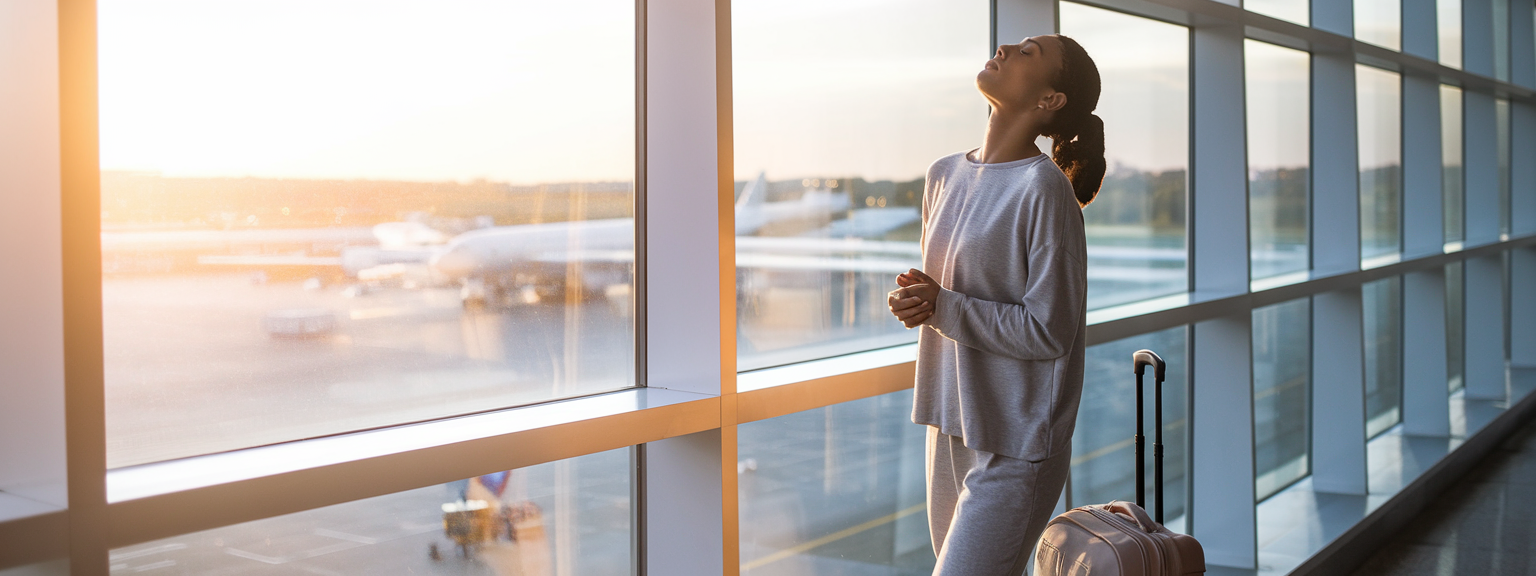10 Proven Tips for Overcoming Jet Lag and Restoring Your Energy
Long travels across multiple time zones can disrupt your sleep and energy levels, leaving you feeling exhausted and unfocused. Understanding and applying these tips for overcoming jet lag can transform your post-flight recovery, allowing you to stay energized, focused, and ready to make the most of your destination. Whether you’re tackling long-haul flights for business or leisure, these strategies offer a blend of science, wellness, and travel-tested methods to help balance your circadian rhythm and reduce travel fatigue.
📍Must-See Attractions
📝 Step-by-Step Guide: Tips for Overcoming Jet Lag
Before your flight, start adjusting your sleep schedule to match your destination’s time zone. Go to bed and wake up an hour earlier or later each day, depending on your direction of travel. This gradual shift helps your body align with the new schedule and minimizes the shock of complete time zone transition.
Stay Hydrated Throughout Your Journey
Dehydration worsens the effects of jet lag. Drink plenty of water before, during, and after your flight. Avoid alcohol and excessive caffeine, as both interfere with sleep and hydration. Herbal teas or electrolyte-infused water can be excellent travel fatigue remedies.
Use Light Exposure to Reset Your Body Clock
Natural light is a powerful signal for your internal clock. Spend time outdoors in daylight upon arrival. If traveling east, get morning sunlight; if heading west, catch the evening rays. This step accelerates jet lag recovery and supports your body’s adjustment to the new time zone.
Consider Natural Sleep Aids Responsibly
Supplements like melatonin can help regulate your circadian rhythm and help you fall asleep at your new local bedtime. Always consult your healthcare provider before taking any supplement, especially if you have preexisting conditions or take medication.
🎭 Local Culture & Experiences
Exploring Global Rest and Recovery Traditions
Different cultures have long practiced unique approaches to rest and balance. The Spanish embrace the afternoon siesta as a way to recharge, while in Japan, the concept of inemuri—“sleeping while present”—is seen as a sign of dedication and mindfulness. Scandinavian cultures fight winter fatigue with exposure to bright, natural light to protect mental wellness and maintain energy levels.
How Cultural Practices Can Improve Your Recovery
Adopting these cultural insights during travel can enhance your travel wellness. A short nap inspired by Mediterranean habits or a morning walk in the sunshine, like the Nordic approach, can help you mirror the rhythm of locals and fast-track your overall sleep schedule adjustment.
Next time you travel, don’t just adapt physically—embrace local routines and rituals that encourage restfulness and presence.
🔑 Hidden Gems & Insider Tips
Expert Advice and Practical Tips for Overcoming Jet Lag
Use these seldom-discussed hacks from frequent flyers and travel wellness experts to speed up your recovery. Bring tools like an eye mask, neck pillow, and noise-canceling headphones to create a restful environment anywhere. Consider adjusting meal timings before your trip to acclimate your digestion to new time zones.
Leverage Sleep and Wellness Apps
Modern travelers rely on digital tools to ease transitions. Use best apps and tools to support tips for overcoming jet lag—including circadian calculators, meditation guides, and hydration reminders. Apps like Timeshifter or Sleep Cycle help analyze your body’s readiness and recommend optimal rest times.
Finally, limit heavy meals and alcohol in-flight, stretch periodically, and use calming scents like lavender or bergamot oil. These subtle practices add up to big differences in how quickly you bounce back.
🗓️ Sample Itinerary or Day Plan
24 Hours to Reset After Landing
Morning (7–9 a.m.): Drink water, enjoy a light protein-rich breakfast, and get outside for sunlight exposure. Avoid prolonged naps.
Midday (12 p.m.): Take gentle walks or activities to stay awake. Eat moderate, balanced meals to avoid sluggishness.
Afternoon (3–5 p.m.): Stretch or meditate to manage fatigue. Power naps under 20 minutes can help if exhaustion hits.
Evening (7–10 p.m.): Have a light dinner, relax under low lighting, and plan for a fixed bedtime that aligns with local hours. If necessary, consider a small dose of melatonin supplement under medical advice.
💡 Travel Tips Specific to the Destination
Best Practices for Jet Lag Prevention and Recovery
Smart planning can prevent jet lag before it starts. Choose flights that arrive in daylight wherever possible, allowing immediate exposure to natural light. If flying east, start adjusting earlier; if west, ease your routine gradually.
Packing for Restful Travel
Pack items that promote relaxation: a soft eye mask, travel blanket, reusable water bottle, and aromatherapy mist. Maintaining comfort during travel reduces stress and supports better rest.
Safety and Professional Guidance
If you struggle with persistent sleep disruption or fatigue, consult a healthcare professional. Your doctor can recommend safe supplements, optimal travel routines, or natural therapies designed for healthier long-distance travel.
Bringing It All Together
Overcoming jet lag is about balance—between discipline and rest, stimulation and calm. By weaving these tips for overcoming jet lag into your travel plans, you’ll arrive refreshed, not fatigued. Every journey becomes more rewarding when your body and mind move in sync with your destination’s rhythm.
So, what’s your go-to remedy for jet lag recovery? Share your experiences below — your insights could help another traveler rest easier on their next adventure.


![[Houston International Food Platter] [Vibrant platter of global dishes showcasing Houston international food]](https://roamwriters.com/wp-content/uploads/2025/11/houston-international-food-bold-flavors.png)
![[Cultural Etiquette International Meeting] [Colleagues exchanging greetings in an international office demonstrating Cultural Etiquette]](https://roamwriters.com/wp-content/uploads/2025/11/cultural-etiquette-international-meeting.png)

![[Travel Emergencies Response] [Traveler checking documents and phone for help after travel emergencies]](https://roamwriters.com/wp-content/uploads/2025/11/travel-emergencies-preparation-guide.png)